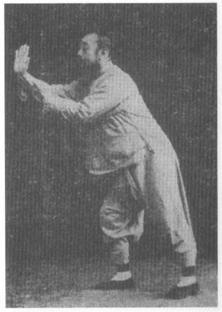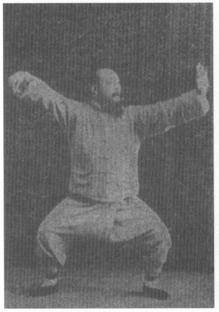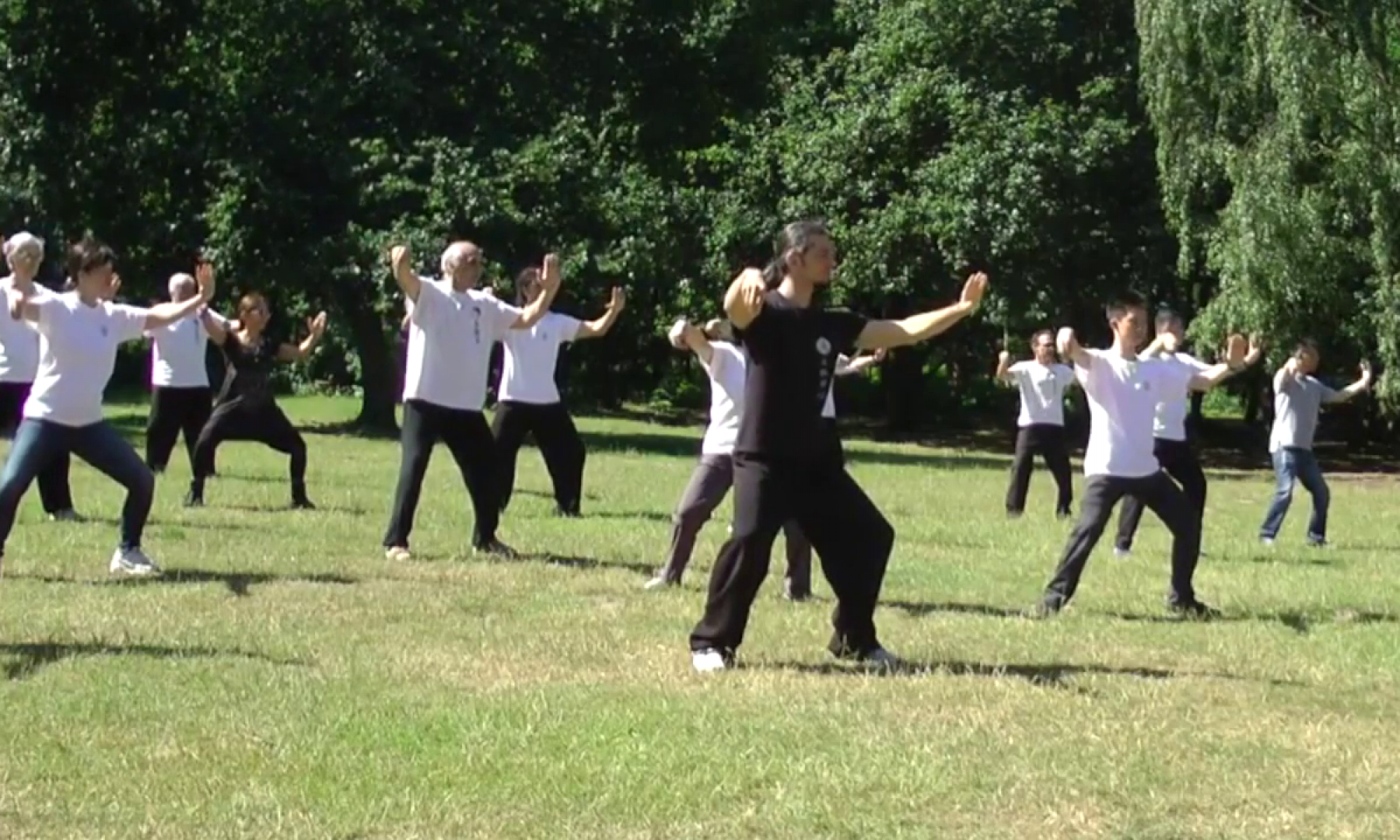dān biān 单鞭 single whip
7. SINGLE WHIP (part 1)
全身略向西南傾。quán shēn luè xiàng xī nán qīng Your whole body slightly inclines to the southwest,
右手依同一方向前推,yòu shǒu yī tóng yī fāng xiàng qián tuī your right hand pushing forward in that direction,
臂略成直形。bèi luè chéng zhí xíng arm slightly straightening,
右腿變實。yòu tuǐ biàn shí while your right leg becomes full,
右脚尖移向南,yòu jiǎo jiān yí xiàng nán the {right} foot shifting the toes to the south,
與左腿成丁字步。yǔ zuǒ tuǐ chéng dīng zì bù and together with the left foot is making a T stance.
眼看西南。yǎn kàn xī nán Your eyes are looking to the southwest.
如圖七。rú tú qī See photo 7:
八 單鞭(二)
8. SINGLE WHIP (part 2)
右手指齊向下攏,yòu shǒu zhǐ qí xiàng xià lǒng The fingers of your right hand lower,
成鷹爪式。(參看爪圖)chéng yīng zhuǎ shì (cān kàn zhuǎ tú)
gathering together to make an eagle’s claw (as in the claw explanation above), {refer to “claw” photo}
左脚依原方向後退半步,zuǒ jiǎo yī yuán fāng xiàng hòu tuì bàn bù
while your left foot, maintaining the direction it is pointing, retreats a half step,
脚跟落地。jiǎo gēn luò dì the heel coming down.
左手離開右腕部,zuǒ shǒu lí kāi yòu wàn bù Your left hand comes away from your right wrist and,
成陰掌,chéng yīn zhǎng becoming a passive [inward] palm,
平向東引;píng xiàng dōng yǐn draws across to the east,
視綫隨之移動;shì xiàn suí zhī yí dòng your gaze following it across
及至轉到東南,jí zhì zhuǎn dào dōng nán until turned to the southeast,
則手心翻成陽掌。zé shǒu xīn fān chéng yáng zhǎng upon which the palm turns over, becoming an active [outward] palm.
同時左脚尖亦隨左手向東南挪。tóng shí zuǒ jiǎo jiān yì suí zuǒ shǒu xiàng dōng nán nuó
At the same time, your left foot turns to point the toes to the southeast,
全身向下蹲坐,quán shēn xiàng xià dūn zuò your whole body squatting down,
成騎馬步。(參看騎馬步圖)chéng qí mǎ bù (cān kàn qí mǎ bù tú ) making a horse-riding stance (as explained above).
眼看左手背。yǎn kàn zuǒ shǒu bèi Your eyes are looking toward the back of your left hand.
如圖八。rú tú bā See photo 8: 


Jin teaches that the arms should only be as high as in photo 8 if you are in a wide horse stance (2 or more shoulder widths). With a more upright stance (around a shoulder width and a half) the arms should be lower (around shoulder height).